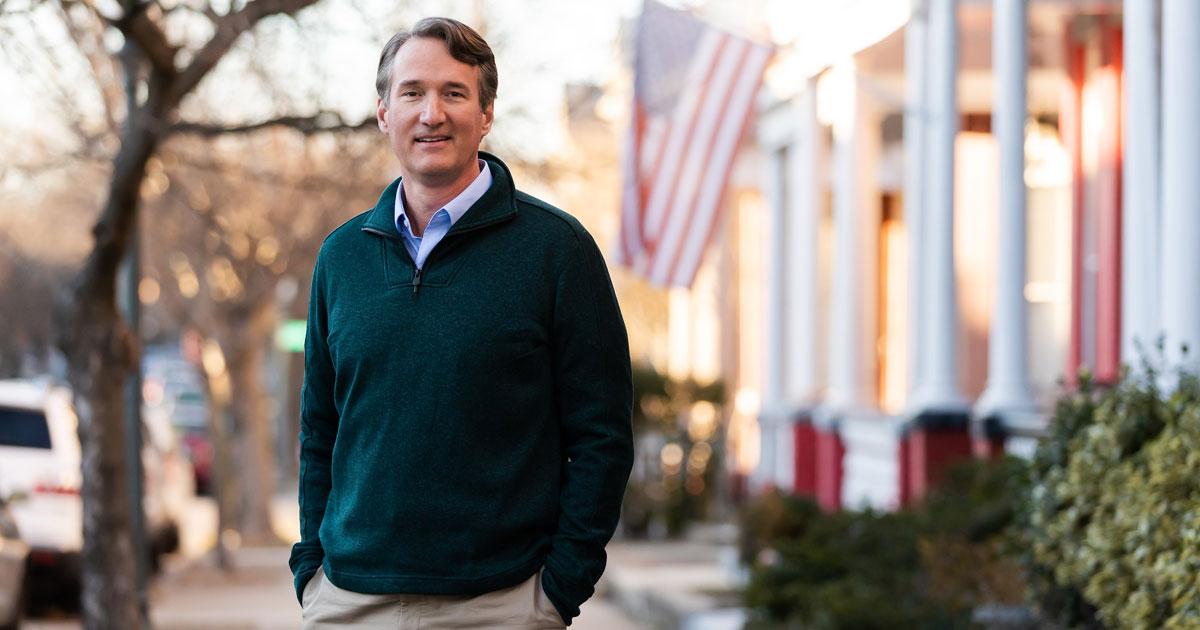
Rural Voters, Guns, and Decentralization Sank the Democrats in Virginia
America’s growing rural divide is not going away any time soon. Recent gubernatorial elections in Virginia have rekindled talk about an inevitable Republican resurgence during the 2022 midterms. History has repeatedly shown the party outside of the White House making gains during the midterms elections, one of the most predictable trends of election cycles in American history.
However, what’s more intriguing is some of the new trends that are gradually crystallizing as fixtures of twenty-first-century politics, namely, soft secession. Although Virginia’s 2021 elections had the trappings of an off-year election, what took place below the surface was simply too enticing to ignore.
There was much talk about the suburban vote in Virginia, and justifiably so. Running under the Republican banner, Glenn Youngkin improved Republican margins with voters in major suburbs across the state by hammering away at the latest iteration of leftist curricula engulfing public schools in the Old Dominion.
But there’s a forgotten man behind Youngkin’s electoral success: the rural voter. This vote was strong not only in terms of the percentages but also in terms of turnout, which was able to take Youngkin across the finish line. For example, Donald Trump only beat Joe Biden 52–46 percent among rural voters during the 2020 elections. Youngkin dramatically expanded upon the victory margin, winning the rural vote by a decisive 63–36 percent margin, according to an exit poll by Edison Research.
Political onlookers were enthralled by Youngkin’s strong rural performance. Some pundits at the milquetoast conservative outlet The Bulwark even described Youngkin’s victory margins in rural areas as “Assad-like.” The culturally radical path the Virginia Democratic Party has taken since it achieved a trifecta in 2019 offers a glimpse of what caused such an electoral backlash. Specifically, gun policy stands out as an underrated factor behind the strong rural reaction against Virginia Democrats.
Much of this vote likely came on the heels of the budding Second Amendment sanctuary movement kicking off in 2019. This was the year the Democrat-controlled General Assembly passed red flag gun confiscation orders, universal background checks, and monthly limits on the number of handguns a law-abiding individual can purchase.
Subsequently, Virginian gun owners marched straight to their county supervisors’ meetings where they pushed for the implementation of Second Amendment resolutions. By getting active in their respective localities, gun owners quickly built a sizable bloc of angry voters who were ready to lash out against any Virginia Democrat running for statewide office.
Presently, there are well over two hundred counties in Virginia that have passed sanctuary resolutions of some sort. The rural counties Youngkin dominated in were among the most prominent in the sanctuary movement. Areas such as Carroll County, the first county to pass a sanctuary resolution in 2019, went to Youngkin handedly, by a vote of 83 percent to 16 percent. This was a marked improvement on Republicans’ victory margin in the 2017 gubernatorial election (77 percent to 22 percent).
The vote breakdown of Virginia elections illustrates the heightened degree of polarization of US politics, where rural areas are not only moving in the opposite direction with regard to their voting behavior but are also trying to break away from urban cores imposing their self-styled “progressive” values on them. We shouldn’t forget that rural Virginia has entertained the idea of seceding from Virginia and potentially joining West Virginia.
The 2021 gubernatorial election could be widely seen as a victory for frustrated Virginians who used the elections as an outlet to constructively lash out against the state’s ruling class. Before the elections, the Democratic trifecta thought its gun control power grab would not be met with pushback. They were operating under the arrogant assumption that Virginia was on the fast track to California or New York status. However, they vastly underestimated the level of furor boiling over in the Virginian hinterlands.
For many Virginians living in Second Amendment sanctuary counties, the right to bear arms is an integral part of their identity. In fact, it would not be a stretch to assume that a sizable portion of rural Virginians can trace their lineage back to the initial settlement of Virginia or share Scots-Irish ancestry—a group that has stubbornly resisted centralized political power since the eighteenth century. Any form of gun control, or iconoclastic attempts to erase their heritage, will activate rural Virginian voters.
Electoral jubilee notwithstanding, governing a state is a whole different kettle of fish. As I mentioned in a previous post on this website, Youngkin appears to be a typical Republican who will not rock the boat. That means lukewarm tax cuts and platitudes about limited government are in short order.
From a historical standpoint, Republican gatekeepers have repeatedly co-opted the contrarian energy of disaffected groups and reoriented it into regime-friendly projects that don’t accomplish much of substance. The biggest fear coming in the wake of Virginia’s elections is the possibility of many individuals going back home now that a Republican is in office, thereby doing nothing to fix Virginia’s current laws or discontinue the decentralist project that the sanctuary movement jump-started.
Indeed, there are valid criticisms of the present set of Second Amendment sanctuary projects, so there’s a significant amount of work to be done. The worst thing that could happen is for people to pack up and stay on the sidelines, thinking everything will be fine and dandy with Republicans back in office. As always, vigilance and dissatisfaction should be the principal mindsets that guide people’s political actions.
All told, the ship has sailed for “normal” politics in America. If anything, the Virginia case shows the need to make nullification projects the new normal. Why bother trying to preserve the very same political order that brought us to our current state of political malaise?
The American system needs a major shake-up. The ever-growing nullification rebellion might just do the trick.




